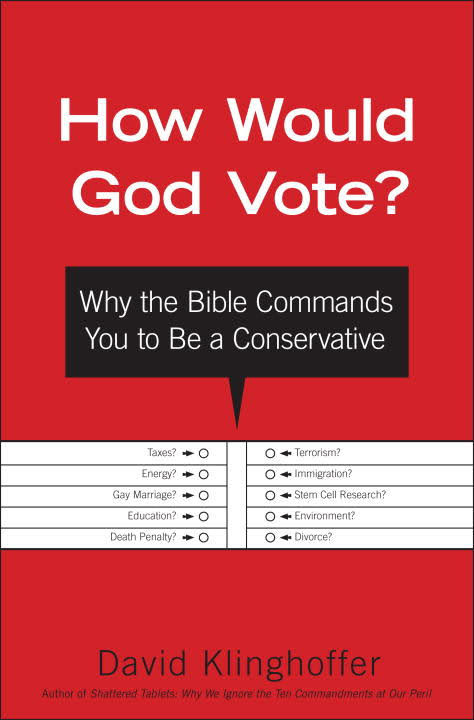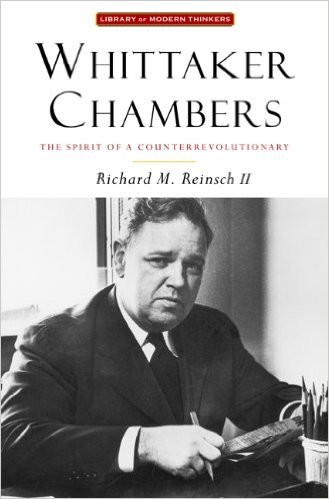At 2016, a quick look ahead as we look back
This new year is the first one since 2008 where there is no incumbent running for president of the United States. Eight years ago I wrote an essay about a new book entitled, “How Would G-d Vote?” by the essayist David Klinghoffer. I will now reprise this work, for its relevance today is most telling.
Within this work I cited the author’s politically conservative views that governed his choices for public policy and elective office. This year, given the ever-more-relevance of Klinghoffer’s politically right-wing views, I will focus on his use of the views of Whittaker Chambers.
“Within the context of this piece, I was most taken by the quote by one of my all time heroes, Whittaker Chambers, who once said, ‘Political freedom, as the Western world has known it, is only a political reading of the Bible’,” I wrote in 2008. This quote, in retrospect and in my opinion, is all the more relevant today as a philosophical backdrop to contemporary political events. The rest of this week’s essay will cite Klinghoffer’s take on Chamber’s continued relevance to the current political scene.
Klinghoffer starters with the following:
“More than 50 years ago, Whittaker Chambers wrote his great memoire, ‘Witness’ about his break with the Communist Party, a story that culminates in his public accusation against a fellow communist, Alger Hiss. Chambers and Hiss were both agents for the Soviet Union, filching American state secrets and delivering them to a Soviet handler. Their espionage ring centered in Washington, D.C., where Hiss was a high official in the State Department.
“Chambers, unlike Hiss, became disillusioned with communism, an ideology that he ultimately understood as being merely a mask that another, deeper belief system — secularism — happened to wear for convenience. It was never about economics, really. It was about man and G-d.”
This spiritual take described by Klinghoffer sends us on a spiritual and emotional journey that defines Chambers’ life forever more.
“In the 1940’s when Whittaker Chambers was an agent for the Soviet Union, the secular vision of man wore the mask of communism. Today, with the economics of communism having been revealed in all its horror and shame by the collapse of the Soviet Union, secularism wears another mask, that of left liberalism, which in a gruesome irony has found it increasingly useful to express itself in pseudo religious language.”
In 2008, when Klinghoffer wrote his book, he concluded this segment with the following observation:
“To affirm that truth in 2008 is a frightening prospect, even in our country with its abiding Judeo-Christian heritage, exposing the person who does so to abuse and condemnation by his ‘tolerant’ secularist neighbors. But, America could use more citizens who openly advocate the politics of the Bible rather than fearing to say what they really think.”
Fast-forward to 2016, today’s political, as well as religious scene. The contrast is glaring. The new year suggests a far more hospitable climate for the recognition of a legitimate role for religion in the public sphere. This is reflected in just about every Republican presidential candidate and, just give it time, in the final Democratic candidate’s stump speeches and ads as well.
The Whittaker Chamber’s legacy continues to be reflected in our community in the person of then-Senate Republican staffer, Nachama Soloveichik, a granddaughter of Rav Aharon Soloveichik zt”l, who in a profile with Jewish Action magazine in 2010 was cited by author Toby Bulman Katz as expressing that among “Soloveichik’s favorite writers are Norman Podhoretz and Whittaker Chambers. The former is a distinguished Jewish author and editor, an intellectual giant, but little known among the younger generation.
The later was one of the greatest writers of the 20th century, a once controversial figure whose name now languishes in obscurity.”
Hopefully, as time passes, Chambers’ legacy and message to future generations will be revived, rediscovered and read by our youth. There is much wisdom to be learned from his autobiography, “Witness,” a work that was much appreciated by many of my friends and former students who survived the persecutions in the Soviet Union and came to these shores and who reinforced in me an even deeper appreciation of the anti-communist legacy of Whittaker Chambers.
A good reading is recommended of Klinghoffer’s work, coupled with that of Richard Reinsch’s work, “Whittaker Chambers: The Spirit of a Counterrevolutionary,” a work previously reviewed favorably in this column, as well as that of author biographer, Sam Tanenhaus’ classic, “Whittaker Chambers,” which I personally consider the best, fairest and most truthful work on the Chambers legacy.
In the new year, hopefully, the sad lessons of the recent past as well as those of the distant past will surely serve as watchwords for a much better future.

 44.0°,
Mostly Cloudy
44.0°,
Mostly Cloudy 







